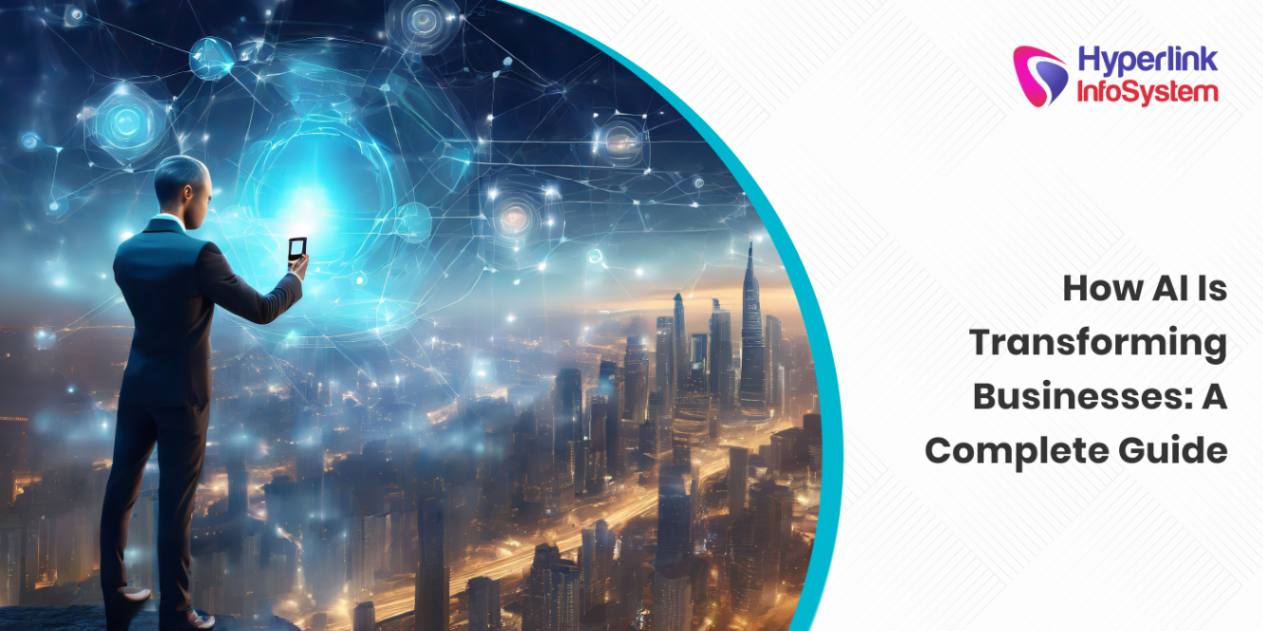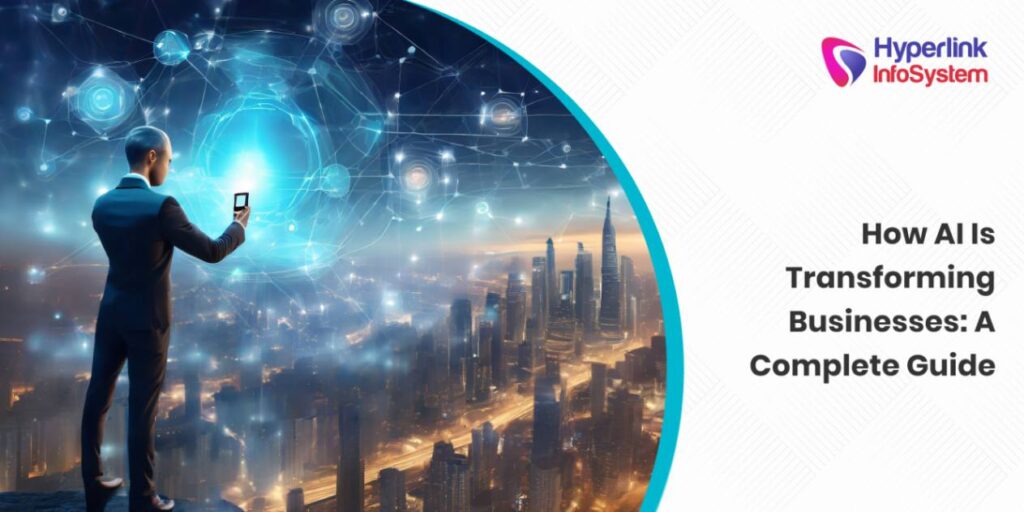
How AI in Business is Transforming the Way Companies Operate: A Comprehensive Guide
Estimated Reading Time: 12 minutes
Key Takeaways
- AI is rapidly changing business operations from automation to marketing.
- Small businesses can leverage AI for competitive advantage despite challenges.
- Top AI tools boost productivity, improve decision-making, and enhance customer experience.
- Marketing automation powered by AI personalizes engagement and maximizes ROI.
- Continued AI integration will define business success and innovation in coming years.
Table of Contents
- Understanding AI in Business Applications
- How AI is Transforming Business
- AI for Small Businesses – Opportunities and Challenges
- Top AI Tools for Productivity in Business
- AI for Marketing Automation – Enhancing Customer Engagement
- Conclusion
- FAQ
Understanding AI in Business Applications
To grasp the impact of AI in business, it’s important to first understand what AI in business applications means. It involves deploying AI technologies—such as machine learning, natural language processing (NLP), and robotic process automation (RPA)—across various business functions. These applications are designed to improve efficiency, increase insights, and optimize operations.
Key AI Business Applications Across Industries
- Retail: AI powers recommendation engines that personalize shopping experiences and manage inventory with predictive analytics to avoid stockouts or overstock.
- Finance: AI detects fraudulent transactions by analyzing patterns and automates trading based on real-time market data.
- Healthcare: AI drives predictive analytics for patient diagnosis, treatment planning, and resource allocation.
- Manufacturing: Predictive maintenance powered by AI reduces downtime while AI-enabled quality control ensures product standards.
Why AI Matters for Business Growth
AI boosts business growth by:
- Streamlining operational workflows to reduce costs and time
- Enabling faster, data-driven decision-making
- Powering innovation that differentiates businesses in competitive markets
As highlighted by Newo.ai, top AI applications transforming business in 2025 will fundamentally reshape organizational design and operations, unlocking greater agility and scalability. Furthermore, Netguru notes that AI tools across sectors accelerate decision-making by providing critical insights automatically, improving responsiveness and strategy execution. For finance-specific automation, such as automating financial reports and ensuring compliance, AI plays a crucial role in enhancing process efficiency (source).
Understanding AI in business applications lays a solid foundation for grasping how AI transforms enterprise performance and shapes the future of work.
How AI is Transforming Business
AI in business is transforming traditional ways companies operate. This transformation centers on three main pillars: automation, data-driven decision-making, and innovation—each unlocking new value and improving productivity.
Automation of Repetitive Tasks
- Data entry and invoice processing
- Customer service chatbots handling common inquiries
- Scheduling and workflow management
By offloading these routine activities to AI-powered systems, companies reduce operational errors and significantly cut costs. Employees are freed to focus on strategic, creative, and high-value tasks. IBM reports that AI-driven automation not only reduces operational costs but also increases accuracy and efficiency in day-to-day business processes. For deeper insights into automation services and process optimization through AI, see how AI automation agencies help businesses optimize workflows effectively. Also, robotic process automation services are vital for transforming business operations by automating repetitive tasks and enhancing efficiency.
Enhanced Data-Driven Decision-Making
AI systems analyze huge volumes of data far faster and with greater accuracy than human analysts. This capability enables businesses to uncover hidden patterns, forecast trends, and optimize supply chain and risk management decisions.
For example, AI-powered analytics platforms equip business leaders with real-time dashboards and predictive insights, enabling faster, smarter decisions. Phrase.com explains that AI turns raw data into actionable business intelligence, significantly enhancing forecasting accuracy and operational agility.
Driving Innovation and Customer Experience Improvements
AI accelerates innovation by enabling new products, services, and customer engagement methods. Machine learning algorithms personalize customer experiences dynamically, adapting offers and communication in real-time.
AI-powered chatbots and virtual assistants operate around the clock to provide instant support and nurture leads. Functionly’s report highlights 12 game-changing AI applications expected to transform business by improving customer engagement and enabling innovative business models. The rise of voice AI technologies, such as developments by SoundHound AI, also illustrates innovation in customer interactions and voice-driven interfaces (source).
The convergence of automation, data insights, and innovation illustrates how AI in business is reshaping operational foundations—making organizations more efficient, responsive, and customer-centric.
AI for Small Businesses – Opportunities and Challenges
AI in business isn’t just for large corporations. Small businesses stand to gain significantly from adopting AI, but they face unique hurdles that require smart strategies.
Benefits of AI for Small Businesses
- Cost Efficiency: AI automates many routine tasks that small teams struggle to handle efficiently, reducing the burden on limited staff.
- Scalability: AI-driven insights and automation enable small businesses to punch above their weight, competing with larger firms on customer experience and operational agility.
- Competitive Edge: Personalized marketing, improved supply chain management, and customer service powered by AI deliver significant advantages.
Practical AI Tools for Small Businesses
- AI-Powered CRM: HubSpot’s AI features automate customer segmentation and outreach.
- Chatbots: Affordable AI chatbots improve customer service with instant responses.
- AI Accounting: QuickBooks integrates AI to automate bookkeeping and financial forecasting.
Cloud-based AI platforms mean upfront investments are lower, and scalability is easier—many solutions operate on subscription models.
Potential Barriers and How to Overcome Them
- Budget constraints
- Limited technical expertise
- Implementation complexity
Solutions to these challenges involve:
- Leveraging AI-as-a-Service platforms to avoid heavy infrastructure costs
- Investing in available AI training resources and online courses
- Outsourcing AI setup and strategy to specialized consultants
Netguru’s research discusses how small enterprises face adoption challenges but notes effective mitigation strategies can accelerate successful integration.
While AI adoption requires effort, the transformational benefits for productivity, customer engagement, and scalability far outweigh the initial barriers—making AI in business accessible for all companies.
Top AI Tools for Productivity in Business
AI tools for productivity are revolutionizing how work gets done. These tools automate mundane processes, enhance communication, and provide predictive insights that streamline project execution.
AI-Driven Scheduling Tools
- x.ai and Clara Labs automate meeting scheduling by managing calendars, negotiating times, and coordinating participants—saving administrative time.
Project Management Platforms
- Monday.com and Asana integrate AI to predict project risks, balance workloads, and automate reporting, improving on-time delivery and team coordination.
Communication Enhancement Tools
- Grammarly uses AI to improve writing clarity and correctness.
- Otter.ai transcribes meetings accurately in real-time, helping teams capture and share key information.
Integration with Workflows
These productivity tools integrate seamlessly with communication platforms like Microsoft Teams, Slack, and traditional email clients. This reduces manual workload and human error, making everyday tasks faster and more reliable.
IBM’s insights point to AI tools as catalysts for enterprise productivity, augmenting human effort rather than replacing it. Newo.ai also forecasts AI will play an essential role in boosting productivity by reducing repetitive tasks and enhancing decision support. For expanding productivity via AI automation, agencies specializing in AI workflow automation offer useful services to businesses.
AI for Marketing Automation – Enhancing Customer Engagement
Marketing automation powered by AI is transforming how businesses engage customers, optimize campaigns, and maximize ROI.
What is Marketing Automation?
Marketing automation uses software platforms to automate repetitive marketing tasks such as:
- Email campaigns
- Social media posting
- Lead nurturing
AI adds a powerful layer of intelligence that personalizes and optimizes these efforts in real-time.
AI-Powered Marketing Automation Features
- Personalized Campaigns: AI analyzes individual customer behaviors and preferences to tailor content, offers, and timing for maximum impact.
- Predictive Analytics: AI forecasts customer trends, lifetime value, and churn risk, enabling marketers to allocate budgets more effectively.
- Chatbots and Virtual Assistants: Operate 24/7 for lead interaction, qualification, and customer support, increasing engagement without additional human resources.
Real-World Examples
Companies using AI-driven platforms like HubSpot, Marketo, and Salesforce Einstein report significantly higher customer engagement and conversion rates.
Phrase.com highlights how AI in marketing automates content creation and targeting for smarter advertising decisions. Functionly’s insights emphasize AI’s role in enhancing customer experience through intelligent automation.
For lead generation specifically on professional networks, LinkedIn automation tools provide AI-enabled solutions to boost marketing and outreach efforts.
Using AI for marketing automation is a transformative approach that helps businesses improve customer retention, generate leads more efficiently, and boost brand loyalty over time.
Conclusion
AI in business is revolutionizing how companies operate—transforming workflows, improving decision-making, enhancing productivity, and elevating customer engagement. This transformation is accessible to businesses of every size, from global enterprises to small startups.
Small businesses, in particular, benefit from AI’s ability to automate routine tasks, personalize marketing, and scale operations cost-effectively. The barriers to AI adoption can be overcome with cloud-based tools, training, and consulting support.
According to IBM, AI adoption rates continue to rise steadily, with organizations increasingly recognizing its critical role in maintaining competitive advantage and operational excellence.
We encourage you to share your experiences or questions about AI in business below and subscribe for more insights on AI technologies and business strategies. Embrace the AI transformation—it is the future of business success.
FAQ
What industries benefit most from AI in business?
AI benefits many sectors including retail, finance, healthcare, and manufacturing by enhancing personalization, fraud detection, predictive analytics, and automated maintenance.
Is AI adoption feasible for small businesses?
Absolutely! Small businesses can leverage affordable cloud-based AI tools and services to automate routine tasks and gain competitive advantages despite budget and technical constraints.
What are the main challenges in implementing AI?
Common challenges include budget constraints, limited technical expertise, and implementation complexity. These can be overcome through AI-as-a-Service, training, and consulting support.
How does AI improve marketing automation?
AI enhances marketing automation by personalizing campaigns, forecasting customer behavior, and enabling 24/7 customer engagement with chatbots and virtual assistants, thus maximizing ROI.
Where can I find reliable AI tools for business productivity?
Tools like x.ai, Clara Labs, Monday.com, Grammarly, and Otter.ai are popular AI-powered productivity solutions. Exploring AI automation agencies can also help tailor solutions for your business.


